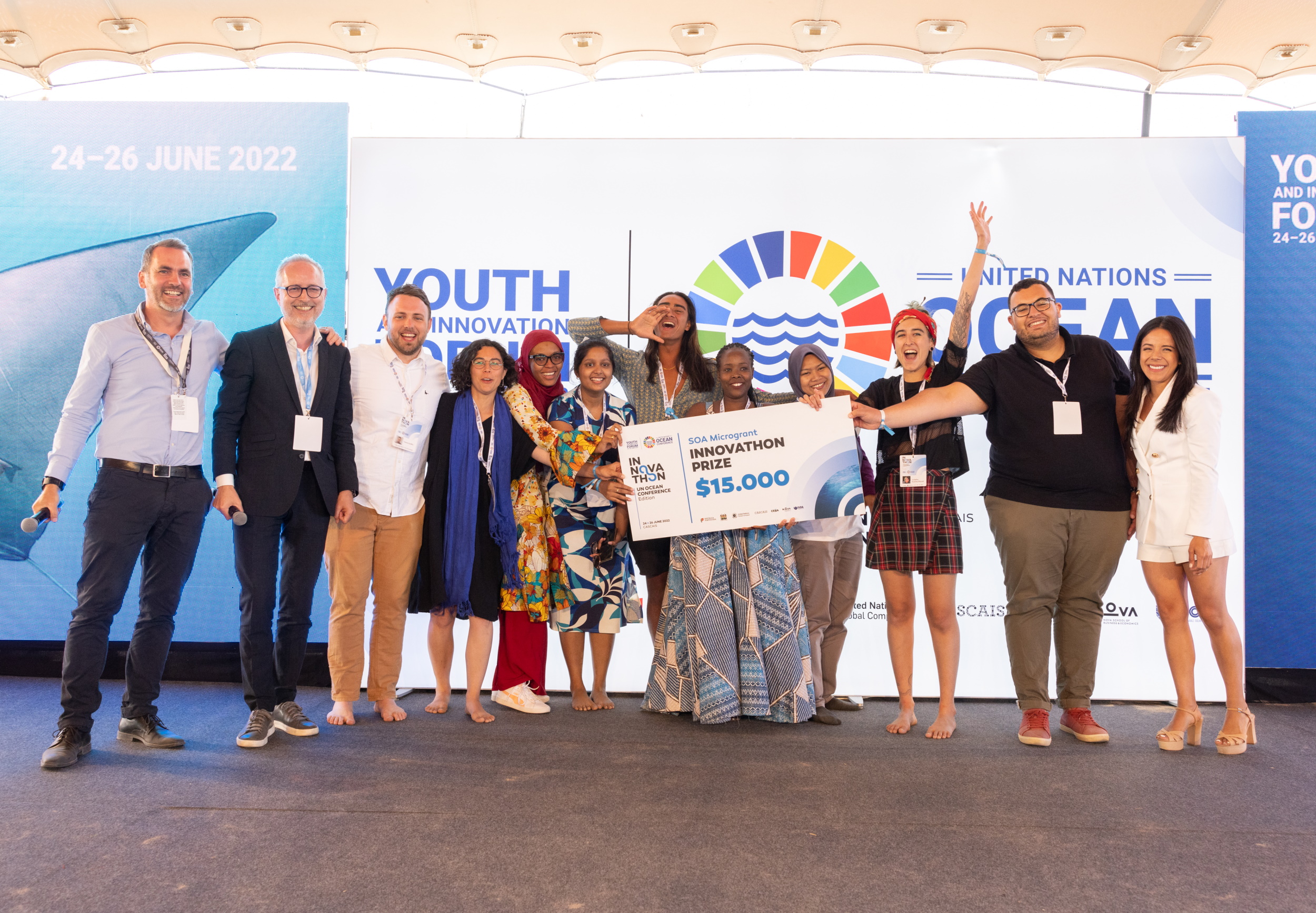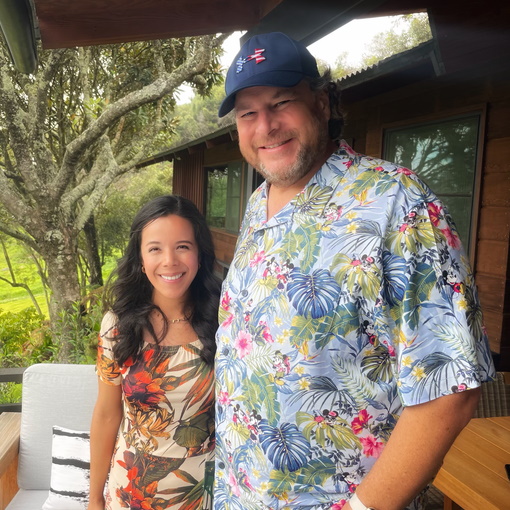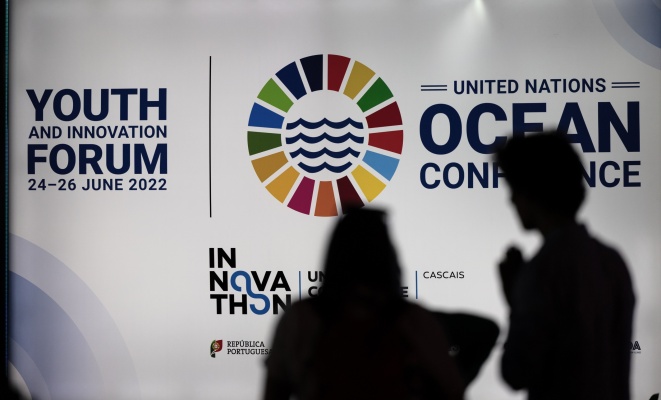With Benioff backing, Sustainable Ocean Alliance aims to be the rising tide that lifts all ‘ecopreneurs’ – TechCrunch
For a few years now the Sustainable Ocean Alliance has been a stalwart advocate for the “blue economy,” and an incubator for ocean-focused early stage startups. Now empowered by $15 million in new funding, the nonprofit hopes to expand its scope and more tangibly support the class of climate-motivated founders they call “ecopreneurs.”
The funding comes from several sources, but most prominently Marc and Lynne Benioff, whose Salesforce-derived philanthropy has had a notably green theme, or in this case blue. Benioff challenged SOA founder Daniela Fernandez to find and accelerate 100 ocean-focused startups and projects back in 2019, and the organization more than doubled that goal. Apparently that activated the donation center in his brain and the result is this new money.
Resonance Philanthropies, Inclusive Capital Partners Foundation, Maja Kristin, and others also chipped in. Fernandez told me that the funding will be put to immediate use to scale their efforts.
“We’ve had so much demand, on the grassroots level and the for profit level but with the limited resources we had, we had to be very selective in who we funded,” she said. “There is such a funding gap in this space – lots of funding going into research, but not into the seeding of these projects, empowering youth across the world, thinking how to disrupt and re-engineer industry.”
She emphasized that while the efforts of bodies like the U.N. are necessary and helpful, ultimately the ones moving things forward are on the ground elsewhere — often young people dismayed by the inaction or foot-dragging they perceive in these institutions. SOA’s hope, which has been borne out in hundreds of small investments and sponsorships, is that a few thousand dollars strategically placed can be the difference between a passionate leader becoming an influential and successful founder or just moving on.
Part of that is also the ability to write bigger checks — up to $100,000 for nascent companies and projects. That may not sound like much compared with enterprise SaaS decacorns but for pre-seed founders like the ones I met in their accelerator at sea, it’s a crucial lifeline that can turn a hobby and passion into a working business.

Participants at the UN Ocean Conference celebrate taking home a “microgrant” check.
But the organization has also found that their cohort-based accelerator, as useful as it is, doesn’t really meet the increasing demands of the sustainable startup economy.
“The time-bound model is broken, I would say. These entrepreneurs need support for life,” said Fernandez.
Craig Dudenhoffer, chief innovation officer and head of the accelerator program there, echoed this assertion and elaborated on how they will be changing the system going forward.
“We see startups leapfrogging across multiple accelerator programs to try and access new networks and funding. Short-term accelerator programs get startups to “the next stage” but what comes after that?” he wrote in an email to TechCrunch. “The SOA Startup network… breaks the mold of traditional accelerators, providing startups with year-round access to SOA’s network of mentors, partners, investors, and a community of ocean impact entrepreneurs — without the rigid structure of an accelerator program. Startups are accepted on a rolling basis throughout the year and immediately begin receiving support from the SOA network. Upon joining the program, startups receive investment from SOA and access to support for the lifetime of their ocean startup.”
Like the Olive Garden, when you’re part of the network, you’re family. Though Fernandez acknowledged similarities to larger startup accelerators like TechStars and Y Combinator, she said that the rolling admissions and focus on this fledgling network is the most important bit.

SOA’s Daniela Fernandez and Salesforce’s Marc Benioff.
“A lot of these entrepreneurs are coming to us and saying, for example, I need a seaweed expert to join our advisory board. And we have to say, wait until our program begins again next year. We want to provide that expertise any time of the year, but also to bring our entrepreneurs to the keystone meetings where they can pitch to investors, governments, corporations, potential partners.”
The goal is to become the de facto professional network for ocean- and eventually more generally climate-focused entrepreneurship, something that would help foster new groups, challenges, competitions, and so on. (Previously funded or incubated companies will be added to the network automatically, in case any of you are reading this.)
Although this $15 million is more money than SOA has had since its humble beginnings a few years back, it’s just beginning of a hustle to raise $100 million over the next three years. The Benioffs have been generous, but they’re not going to cover the whole bill.
“We are absolutely looking for other investors and philanthropists to reach that $100 million goal,” Fernandez said. “We’ve got to make the ocean a priority. It’s the most underfunded of all the U.N. SDGs [sustainable development goals]. Here at the U.N. ocean conference, when a youth leader turned to a government leader and asked them what comes next, there was no tangible plan. There were apologies for what their generation has done, but no concrete change they would hold themselves accountable to.”
As expected, if you want something done right, or at all, you have to do it yourself — as leaders in the sustainability space are increasingly finding out. Hopefully organizations like SOA will help them do just that.
Credit: Source link


Comments are closed.